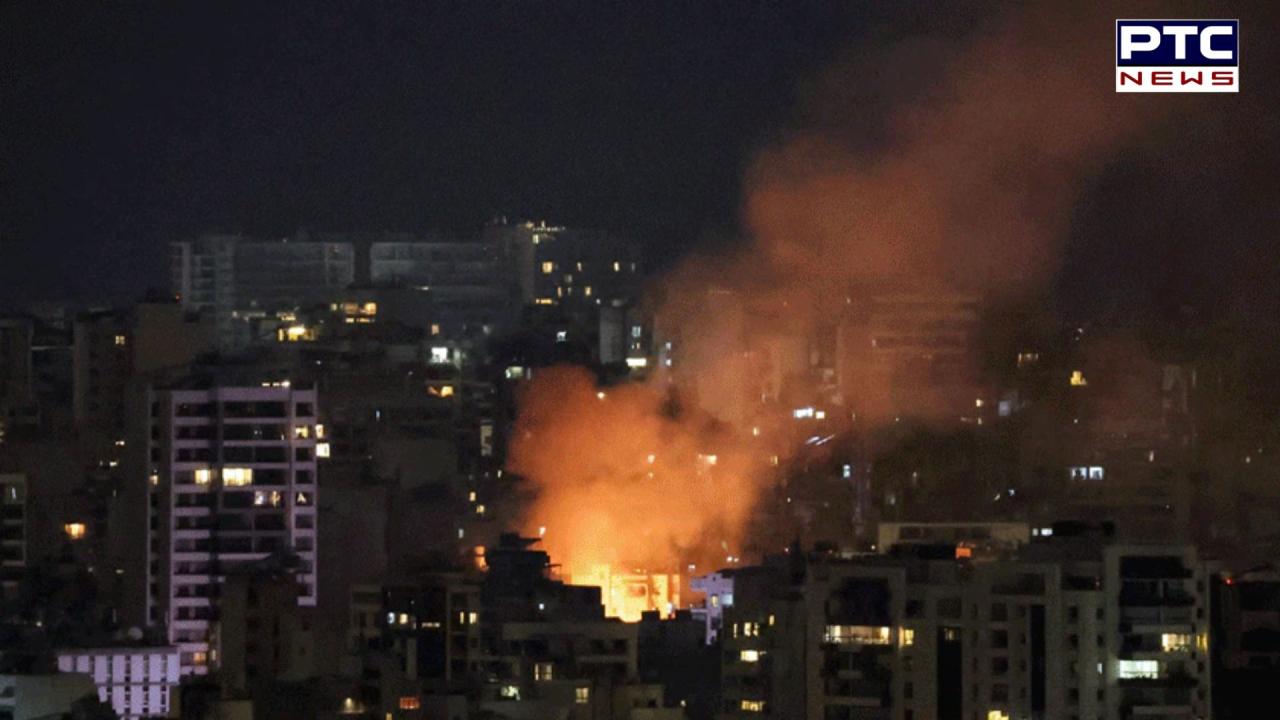Hezbollah leader survives assassination attempt amid Israeli strikes that kill 22 in Beirut
During Israeli bombings on central Beirut, senior Hezbollah official Wafiq Safa narrowly avoided an assassination attempt that left 22 people dead and numerous others wounded.

PTC News Desk: A senior Hezbollah official narrowly escaped an Israeli assassination attempt on Thursday in Beirut, according to a report by Reuters citing security sources. The attack occurred as part of a broader wave of Israeli airstrikes that claimed the lives of 22 individuals, further escalating the already intense conflict between Israel and Hezbollah, the militant group backed by Iran.
The Israeli airstrikes, which were among the most devastating in over a year, demolished buildings in two residential neighborhoods and left dozens of people injured. The strikes also endangered United Nations peacekeepers stationed in southern Lebanon, sparking international outrage and accusations of violating international law.
Key Developments in the Israel-Hezbollah Conflict
- Hezbollah Official Targeted: Wafiq Safa, the head of Hezbollah’s liaison and coordination unit, was the intended target of the Israeli assassination attempt. Safa plays a crucial role in managing the group’s security operations and political affairs. Hezbollah's Al Manar TV confirmed that Safa was not present in the buildings hit during the strikes, confirming his survival. The assassination attempt underscores Israel's shifting strategy to focus not just on Hezbollah’s military commanders, but also on key political figures within the organization.
- Fatal Airstrikes in Beirut: The Israeli airstrikes targeted two residential buildings in central Beirut, killing 22 people and injuring at least 117, as reported by Lebanon’s health ministry. One of the buildings, an eight-story structure, was completely leveled, while the other saw its lower floors obliterated. These strikes left both neighborhoods engulfed in smoke and devastation, with witnesses noting that one of the destroyed buildings housed recently displaced families. The scale of the destruction marks a significant escalation in hostilities.
- UN Peacekeepers Under Fire: In southern Lebanon, Israeli forces reportedly opened fire on UN peacekeepers, wounding two personnel. This attack provoked strong condemnation, especially from Italy, which summoned Israel’s ambassador to protest the incident. Andrea Tenenti, a spokesperson for the United Nations Interim Force in Lebanon (UNIFIL), described the situation as “one of the most serious events” the peacekeeping force has witnessed over the past year. Despite the risks, UN peacekeepers will continue their mission in southern Lebanon.
- International Response: The international community reacted with growing concern to the violence. A spokesperson from the U.S. State Department urged Israel to take "all feasible steps" to protect civilians during its military operations. While the U.S. supports Israel's right to defend itself against Hezbollah, the spokesperson emphasized that the manner in which Israel conducts its military actions is critically important.
Meanwhile, discussions between U.S. President Joe Biden and Israeli Prime Minister Benjamin Netanyahu revealed that the two countries largely share concerns about the broader strategic challenges in the Middle East, particularly in relation to Iran. The conversation followed Iran's missile attack on October 1, with more talks planned to address the situation. - Airstrikes in Gaza: In a related development, Israeli airstrikes in Gaza struck a school, killing at least 28 people, according to the Red Crescent. The Israeli military claimed that their target was a group of "terrorists" operating from within the school. This strike has added to the already fraught situation in the region, where civilian casualties continue to rise.
- Calls for De-escalation: Amid the escalating tensions, U.S. Vice President Kamala Harris, who is also a Democratic presidential candidate, urged for a de-escalation of violence in the Middle East. Speaking in Las Vegas, Harris emphasized the need for a ceasefire, stating, “We have got to reach a ceasefire. We’ve got to de-escalate.”
The latest developments highlight the growing intensity of the conflict between Israel and Hezbollah, with significant loss of life, injuries, and widespread destruction in Beirut. The assassination attempt on Wafiq Safa signals Israel’s increasing focus on high-ranking Hezbollah officials, while the airstrikes on civilian areas and UN peacekeepers have drawn sharp international criticism. Calls for de-escalation and the protection of civilians are mounting, but the path to peace remains uncertain as tensions continue to rise.
